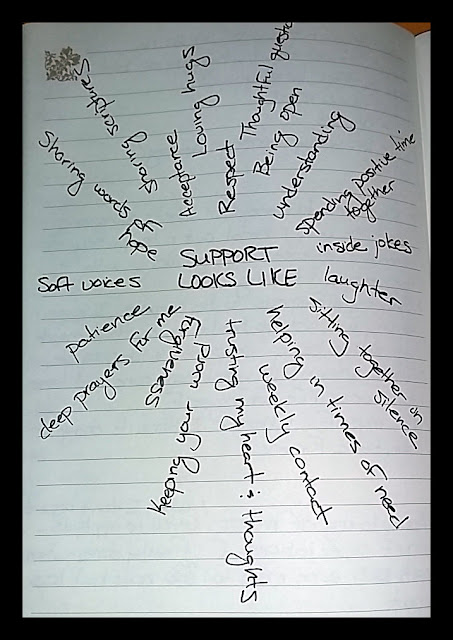sup·port (verb)
- to bear all or part of the weight; hold up
- give assistance to; enable to function or act
Have
you ever taken the time to consider what support looks like to YOU as an
individual? We may assume that everyone feels supported by the same things, and
although some might be universal, other support actions may not be as intuitive.
But before getting into the exercise, why is developing a strong support system so vital? Mayo
Clinic writes, "Several studies have demonstrated that having a network of
supportive relationships contributes to psychological well-being. When you have
a social support network, you benefit in the following ways:
- Sense of belonging. Spending time with people helps ward off loneliness. Whether it's other new parents, dog lovers, fishing buddies or siblings, just knowing you're not alone can go a long way toward coping with stress.
- Increased sense of self-worth. Having people who call you a friend reinforces the idea that you're a good person to be around.
- Feeling of security. Your social network gives you access to information, advice, guidance and other types of assistance should you need them. It's comforting to know that you have people you can turn to in a time of need."
Below is a copy of my answers to the exercise. I took 5 minutes and tried not to over-think, too much. HA. I hope to be able to find out what "support looks like" to my family and friends too! For me, the most surprising things that came to mind were: thoughtful questions (you know, those that dig deeper than 'how are you doing?') soft voices, sitting together in silence, and inside jokes.
Support systems are grounding and uplifting at the same time however, how we individually feel supported by those around us can be different. I hope you'll take 5 minutes today, or over the weekend, to do this little mental health exercise too. As poet, Thomas Merton once said, "We cannot be ourselves unless we know ourselves." :)


No comments:
Post a Comment